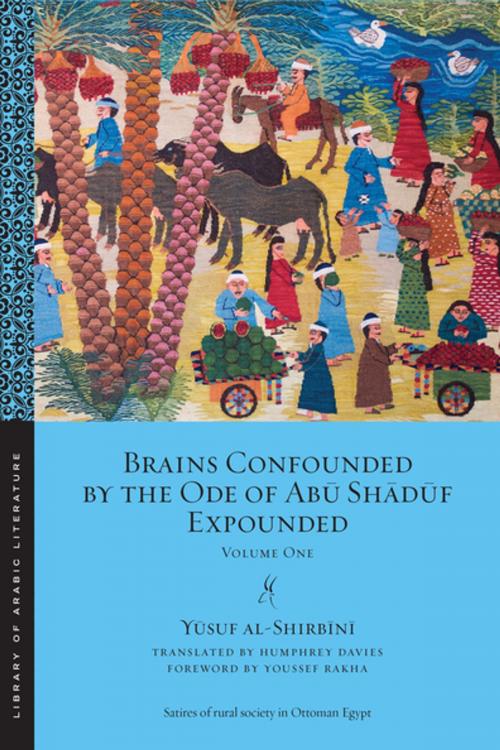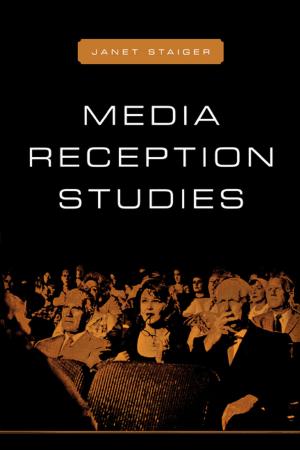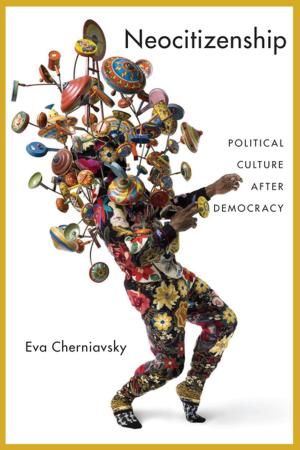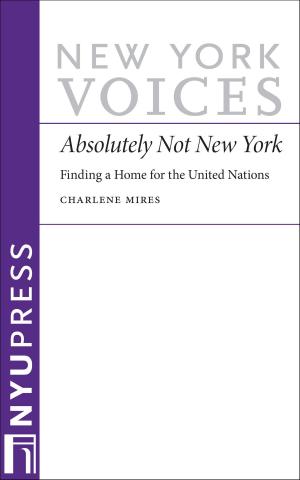Brains Confounded by the Ode of Abu Shaduf Expounded
Volume One
Fiction & Literature, Literary Theory & Criticism| Author: | Yusuf al-Shirbini | ISBN: | 9781479879847 |
| Publisher: | NYU Press | Publication: | April 9, 2019 |
| Imprint: | NYU Press | Language: | English |
| Author: | Yusuf al-Shirbini |
| ISBN: | 9781479879847 |
| Publisher: | NYU Press |
| Publication: | April 9, 2019 |
| Imprint: | NYU Press |
| Language: | English |
Witty, bawdy, and vicious, Yusuf al-Shirbini’s Brains Confounded pits the “coarse” rural masses against the “refined” urban population. In Volume One, al-Shirbini describes the three rural “types”—peasant cultivator, village man-of-religion, and rural dervish—offering anecdotes testifying to the ignorance, dirtiness, and criminality of each. In Volume Two, he presents a hilarious parody of the verse-and-commentary genre so beloved by scholars of his day, with a 47-line poem supposedly written by a peasant named Abu Shaduf, who charts the rise and fall of his fortunes. Wielding the scholarly tools of elite literature, al-Shirbini responds to the poem with derision and ridicule, dotting his satire with digressions into love, food, and flatulence.
Volume Two of Brains Confounded is followed by Risible Rhymes, a concise text that includes a comic disquisition on “rural” verse, mocking the pretensions of uneducated poets from Egypt’s countryside. Risible Rhymes also examines various kinds of puzzle poems, which were another popular genre of the day, and presents a debate between scholars over a line of verse by the tenth-century poet al-Mutanabbi. Together, Brains Confounded and Risible Rhymes offer intriguing insight into the intellectual concerns of Ottoman Egypt, showcasing the intense preoccupation with wordplay, grammar, and stylistics and shedding light on the literature of the era.
Witty, bawdy, and vicious, Yusuf al-Shirbini’s Brains Confounded pits the “coarse” rural masses against the “refined” urban population. In Volume One, al-Shirbini describes the three rural “types”—peasant cultivator, village man-of-religion, and rural dervish—offering anecdotes testifying to the ignorance, dirtiness, and criminality of each. In Volume Two, he presents a hilarious parody of the verse-and-commentary genre so beloved by scholars of his day, with a 47-line poem supposedly written by a peasant named Abu Shaduf, who charts the rise and fall of his fortunes. Wielding the scholarly tools of elite literature, al-Shirbini responds to the poem with derision and ridicule, dotting his satire with digressions into love, food, and flatulence.
Volume Two of Brains Confounded is followed by Risible Rhymes, a concise text that includes a comic disquisition on “rural” verse, mocking the pretensions of uneducated poets from Egypt’s countryside. Risible Rhymes also examines various kinds of puzzle poems, which were another popular genre of the day, and presents a debate between scholars over a line of verse by the tenth-century poet al-Mutanabbi. Together, Brains Confounded and Risible Rhymes offer intriguing insight into the intellectual concerns of Ottoman Egypt, showcasing the intense preoccupation with wordplay, grammar, and stylistics and shedding light on the literature of the era.















